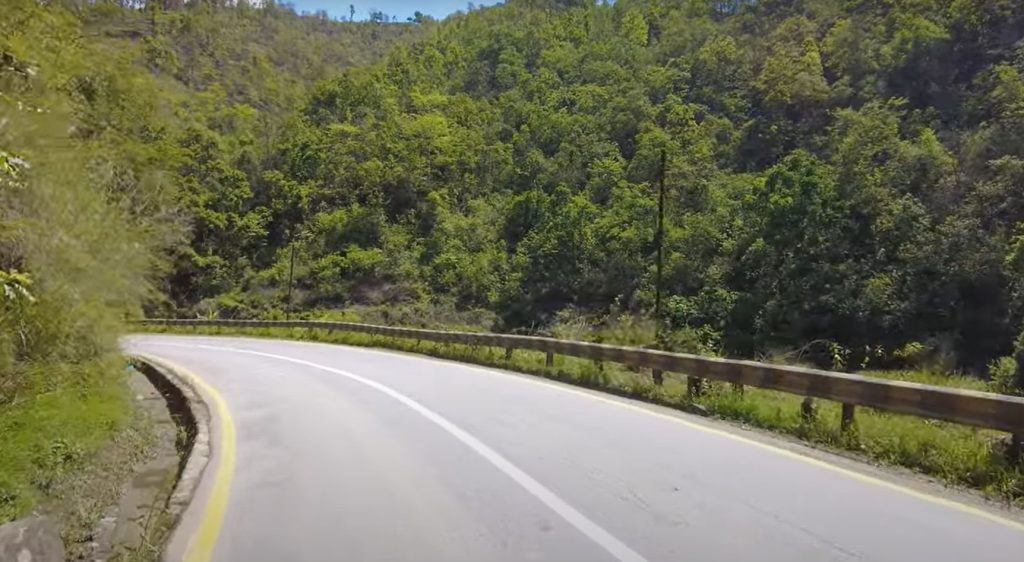
The provinces of Karnali and Lumbini have decided to work together to conduct a feasibility study for the construction of tunnels at two points along the Ratna Highway, which runs between them. Following discussions between the chief ministers of the two provinces on Friday, the decision was reached in a joint commitment. The study will concentrate on tunnel construction along the highway’s Babai-Chinchu and Kohalpur-Babai segments.
Following talks between Karnali Province Chief Minister Yam Lal Kandel and Lumbini Province Chief Minister Chet Narayan Acharya in Birendranagar, the promise also details cooperative measures to improve important infrastructure. These include the Kohalpur-Surkhet Road, the Rapti Highway, the Surkhet-Telpani-Bhurigaun Road, and the Jamuna-Hilsa Road.
Similar to this, the two provinces have decided to ask the federal government to allow them to fly directly to each other. “We have agreed to ask the federal government to run aviation services between Surkhet, the capital of Karnali Province, and Bhairahawa in Lumbini Province,” stated Karnali Chief Minister Kandel, “We will also work to establish regular flights between the hilly Karnali areas and airports in Lumbini Province.”
Resolving concerns about the extension of the 132KV transmission line between the provinces is the subject of another important agreement. Tower work for the line, which will link Karnali Province, is being impeded by locals in Banke. To solve this problem, both provinces have promised to cooperate.
Plans to find large-scale projects that the two provinces could jointly fund are also included in the agreement. Coordinating with the federal government to expedite the construction of the national pride project, the Bheri-Babai multipurpose project, and guaranteeing consistency in taxes imposed under provincial legislation are further areas of collaboration. The sharing of royalties derived from natural resources is another goal shared by the two provinces.
The chief ministers have decided to ask the federal government to settle a border dispute between the two provinces based on the evidence and rules now in place. The Bheriganga Municipality-5 territory in Surkhet (Karnali) and the Babai district of Bansgadhi Municipality-1 in Bardiya (Lumbini Province) are at odds. The Bheri-Babai project, which will include a power plant producing 48 megawatts of electricity, also depends on this location. The provinces fear that future conflicts may result from this issue.
In order to combat drug trafficking and promote religious tourism, both provinces also decided to work with security forces to create an integrated tourism route that connects Lumbini and Karnali. They also intend to work with the business sector to develop combined travel packages that connect the main tourist attractions in both provinces.
The agreement also encompasses cooperative infrastructure projects, such as hydroelectric generating projects, transmission line extension, and the development of irrigation and drinking water systems on the provinces’ bordering rivers and canals. Additionally, the two provinces will collaborate on bridge and road construction projects close to their boundaries.
Similarly, the two provinces will work together to set public transportation passenger tariffs, implement road safety initiatives, and provide driver training in an effort to lower the number of traffic accidents. The agricultural goods of Karnali, like as fruits, herbs, and organic vegetables, will also be made available in Lumbini’s primary marketplaces, and vice versa for Lumbini’s food items in Karnali.
Given that Lumbini is the entry point to Karnali, Karnali Chief Minister Kandel underlined the value of collaboration between the provinces. “Lumbini is essential to us since Karnali lacks direct connectivity to its southern neighbor,” he stated. “For this reason, we have made the road link between the two provinces our top priority.”
The 19-point agreement will also be included in the upcoming year’s budget, policies, and programs, according to Lumbini CM Acharya. He added that the Bheri-Babai Diversion Multipurpose Project is a national pride project, and the federal government would decide how much royalties the two provinces will get from it.











